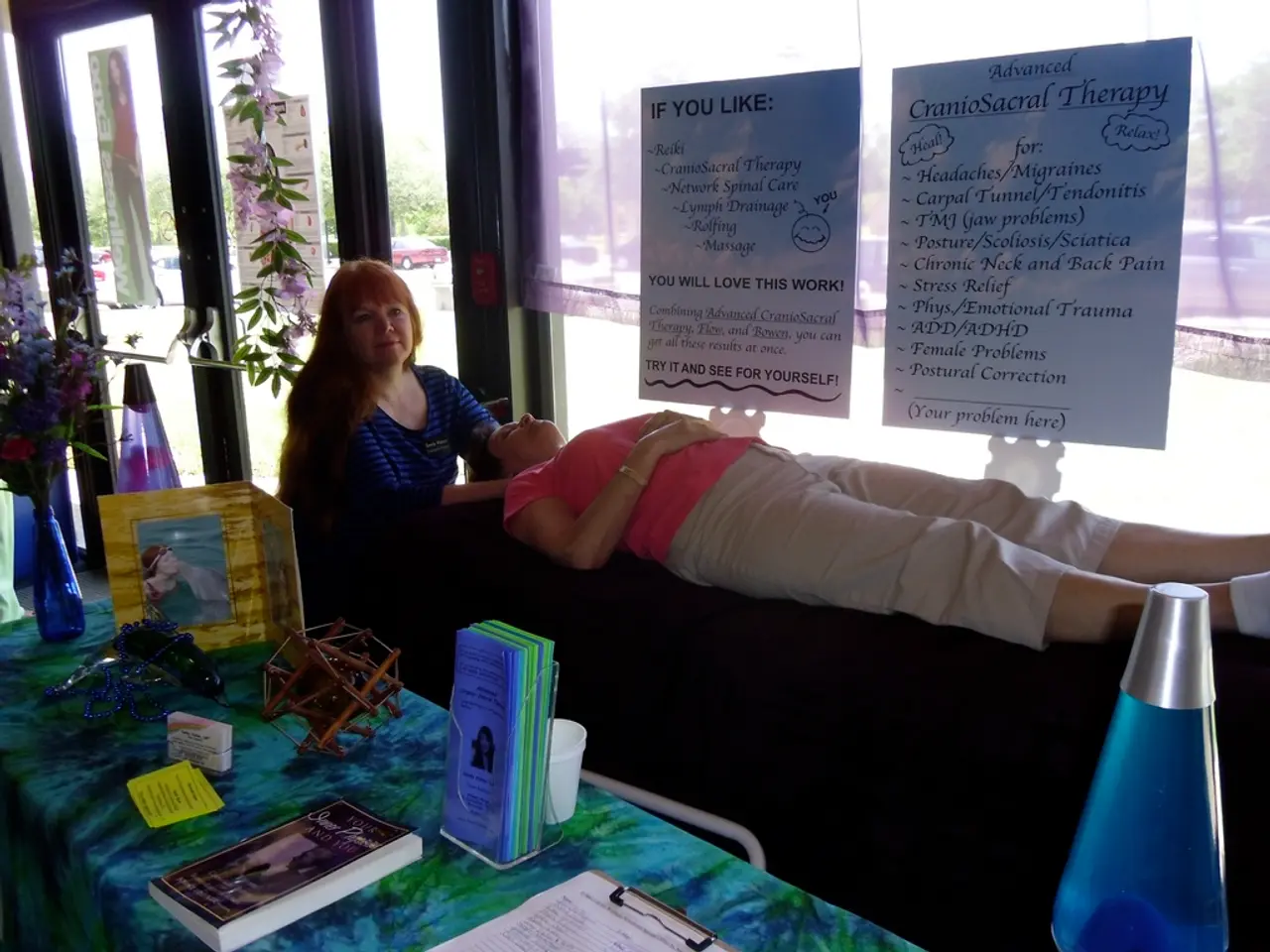Dementia patients might find solace in music, lessening their distress
In a groundbreaking development, a new music therapy approach called MELODIC has shown significant benefits in managing distress among dementia patients on mental health wards. The approach, which was piloted on two NHS dementia wards, offers a safe, low-cost, and non-pharmacological alternative to address high levels of distress[1][2].
### Key Benefits and Effectiveness of MELODIC:
The MELODIC approach, co-designed by clinicians, researchers, and people with lived experience, has demonstrated several key advantages.
- **Reduction in Distress:** The approach has been shown to reduce severe distress symptoms in dementia patients, offering a compassionate alternative to psychotropic medications which often have adverse effects[1][2]. - **Improved Quality of Life:** Patients experienced slight improvements in quality-of-life scores, indicating enhanced overall well-being through the intervention[1][2].
- **Safety and Low Cost:** MELODIC is a safe intervention with no reported adverse events linked to music therapy. It is also a low-cost and scalable intervention, costing just over £2,000 per month for implementation on hospital wards[1].
- **Sustained Engagement:** Music therapy includes activities such as singing, playing, or listening to music, which can be integrated into daily care by families and carers, promoting sustained positive engagement[2].
- **Therapeutic Mechanism:** Music in dementia care taps into preserved neural pathways due to the brain’s innate musicality. Musical memories often remain intact even as other cognitive functions decline, which helps reduce anxiety and agitation by providing structure and emotional stimulation[3][4].
- **Non-Increasing Adverse Incidents:** The study noted no increase in incidents such as agitation or disruptive behavior; while agitation scores slightly rose, overall distress and clinicians' observations suggested therapeutic benefits outweigh challenges[2].
### Summary
The MELODIC approach to music therapy effectively alleviates distress and slightly improves quality of life among dementia patients in mental health settings. This intervention supports compassionate care in complex clinical environments[1][2][3][4]. The study, funded by the National Institute for Health and Care Research (NIHR) Applied Research Collaboration East of England (NIHR ARC EoE), suggests a potential for improving the experience on dementia wards using music therapy.
Researchers at Anglia Ruskin University and Cambridgeshire and Peterborough NHS Foundation Trust have piloted the MELODIC approach on two NHS dementia wards. The cost of implementing the MELODIC intervention is £2,025 per month for the therapist and a one-time equipment cost of £400[1]. This study is relevant for future research on mental health dementia wards where limited studies have been conducted to date.
The study's principal investigator expressed excitement about the potential for NHS staff to use music therapy to improve care on dementia wards, emphasizing the need for more alternatives to psychotropic medication to support dementia patients who experience severe distress[5]. The results from the research have been published today in the journal Frontiers in Psychiatry[6].
- This innovative music therapy approach, MELODIC, is co-designed by clinicians, researchers, and people with lived experience, offering potential benefits in managing mental health conditions like dementia [3][4].
- The library at Anglia Ruskin University might contain research papers detailing the key benefits and effectiveness of the MELODIC approach for healthcare settings, particularly in managing distress among dementia patients [7].
- In light of the published results demonstrating the benefits of MELODIC, universities across the country might be organizing events discussing the role of music therapy in healthcare and mental health-and-wellness [8].
- The staff at healthcare facilities could consider incorporating music therapy into their care programs, as MELODIC provides a low-cost, non-pharmacological alternative for managing distress in dementia patients [1].
- Beyond dementia care, research focusing on the application of MELODIC in other healthcare settings, such as hospitals and nursing homes, could lead to further advancements in study areas like health-and-wellness and science, ultimately improving the lives of patients dealing with various mental health challenges [9].




